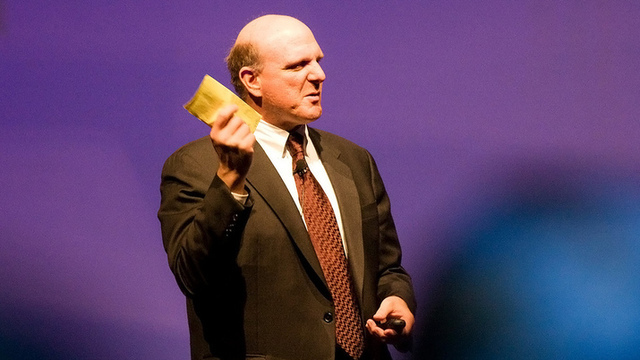
A Google patent lawyer says that the patent system is broken, and he accuses Microsoft of abusing the system. Speaking to the San Francisco Chronicle on Sunday, Google's Tim Porter pointed to Microsoft's attacks on Linux as an example of its broader corporate strategy.
"When their products stop succeeding in the marketplace, when they get marginalized, as is happening now with Android, they use the large patent portfolio they've built up to get revenue from the success of other companies' products," he said.
Microsoft has argued that the patent royalties it seeks from Android vendors are part of the natural evolution of a new industry. Porter disagrees.
"Microsoft was our age when it got its first software patent," he said. "I don't think they experienced this kind of litigation in a period when they were disrupting the established order. So I don't think it's historically inevitable."
Of course, the reason Microsoft didn't have to worry about patents during its first dozen years was because the courts and the patent office didn't allow patents on software until the 1980s. Indeed, the idea of patents on software alarmed Bill Gates, who wrote in 1991 (when Microsoft was already older than Google is now) that "the industry would be at a complete standstill" if software had been eligible for patent protection in the early days of the industry. He worried that "some large company will patent some obvious thing," enabling the company to "take as much of our profits as they want."
Today, Google finds itself in exactly the predicament Gates warned about 20 years ago. The Chronicle asked Porter the obvious question: should software be patentable? Porter refused to give a straight answer "There are certainly arguments" that copyright protection is "more appropriate" for the software industry, he said. But he would only say that "the current system is broken," and that there has been "a 10- or 15-year period when the issuance of software patents was too lax."
Porter pointed to the 2007 Teleflex decision as an important step toward reform. In that case, the Supreme Court raised the bar for obviousness and encouraged patent examiners to use common sense to reject obvious patents.
Yet in the four years since that decision, both the rate at which patents are granted and the amount of patent litigation has continued to skyrocket. Porter said he hoped the Supreme Court's decision would "put some teeth" in the law, but there's no sign that it has.
So why is Google unwilling to admit that we'd be better off without software patents? We can only speculate, but there are two likely explanations: one is that public companies like Google are inherently conservative institutions. They worry that taking "radical" positions might damage their reputations and cause PR problems. For example, future opponents in patent litigation could seize on comments opposing software patents as evidence that Google deliberately flouts the law.
Second, companies tend to delegate decisions about their patent policy stance to patent lawyers. And patent lawyers overwhelmingly believe that software (and almost everything else) should be eligible for patent protection.
Still, neither of these are solid reasons for Google's timid stance on patent reform. For example, Red Hat has consistently opposed software patents. This stance doesn't seem to have hurt it in the marketplace or in the courtroom, and the company has generated significant goodwill among programmers, especially in the free software community.
"There are only so many ways to describe a piston, but software patents are written by lawyers in a language that software engineers don't even understand," Porter said. "They're being used to hinder innovation or skim revenue off the top of a successful product."
He's exactly right. Which makes it a shame that he won't admit we'd be better off without them.
Listing image by Photograph by Francesco Lodolo
reader comments
182